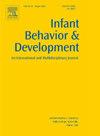The effectiveness of music on pain during heel blood collection in premature infants: A randomized controlled trial
IF 2
3区 心理学
Q3 PSYCHOLOGY, DEVELOPMENTAL
引用次数: 0
Abstract
Newborns are exposed to pain during heel blood collection. The experience of pain in newborns can lead to both physiological and behavioral changes. The aim of this study was examine the effect of music (classical music and lullaby) on pain during the heel blood collection in premature infants. This single blind randomized controlled study was conducted between October, 2022 and April, 2023 in the Neonatal Intensive Care Unit at a university hospital. A total of 60 premature infants were randomly allocated to three groups: the Control Group, the Classical Music Group, and the Lullaby Group. Pain, oxygenation saturation levels, heart rate and respiratory rate were measured before, during, after the heel blood collection procedure. There were no statistically significant differences in the demographic data of the infants in the classical music, lullaby, and control groups. After heel blood collection procedure, pain levels, heart rate and respiratory rate of premature infants in the lullaby groups measurement were lower than the classical and control group. No significant difference was found in terms of oxygen saturation between the groups. In premature infants, in the lullaby group listening to during heel blood collection was more effective in reducing pain compared to the control group and classical music. This indicates lullaby can potentially be an effective method in alleviating pain during heel blood collection.
音乐对早产儿足跟采血疼痛的有效性:一项随机对照试验。
新生儿在采集足跟血液时会感到疼痛。新生儿的疼痛体验会导致生理和行为上的改变。本研究的目的是探讨音乐(古典音乐和摇篮曲)对早产儿足跟采血疼痛的影响。这项单盲随机对照研究于2022年10月至2023年4月在一所大学医院的新生儿重症监护室进行。60名早产儿被随机分为三组:对照组、古典音乐组和摇篮曲组。在采集足跟血液前、中、后分别测量疼痛、氧饱和度、心率和呼吸频率。古典音乐组、摇篮曲组和对照组婴儿的人口统计学数据没有统计学上的显著差异。经足跟采血后,测量摇篮曲组早产儿的疼痛程度、心率和呼吸频率均低于经典组和对照组。两组间血氧饱和度无显著差异。在早产儿中,与对照组和古典音乐相比,在收集脚跟血液时听摇篮曲组在减轻疼痛方面更有效。这表明摇篮曲可能是缓解足跟采血时疼痛的有效方法。
本文章由计算机程序翻译,如有差异,请以英文原文为准。
求助全文
约1分钟内获得全文
求助全文
来源期刊

Infant Behavior & Development
PSYCHOLOGY, DEVELOPMENTAL-
CiteScore
4.10
自引率
4.80%
发文量
94
期刊介绍:
Infant Behavior & Development publishes empirical (fundamental and clinical), theoretical, methodological and review papers. Brief reports dealing with behavioral development during infancy (up to 3 years) will also be considered. Papers of an inter- and multidisciplinary nature, for example neuroscience, non-linear dynamics and modelling approaches, are particularly encouraged. Areas covered by the journal include cognitive development, emotional development, perception, perception-action coupling, motor development and socialisation.
 求助内容:
求助内容: 应助结果提醒方式:
应助结果提醒方式:


